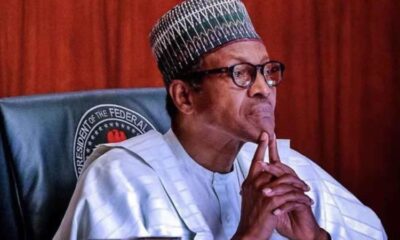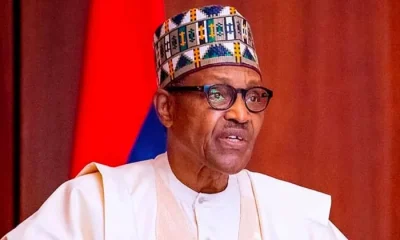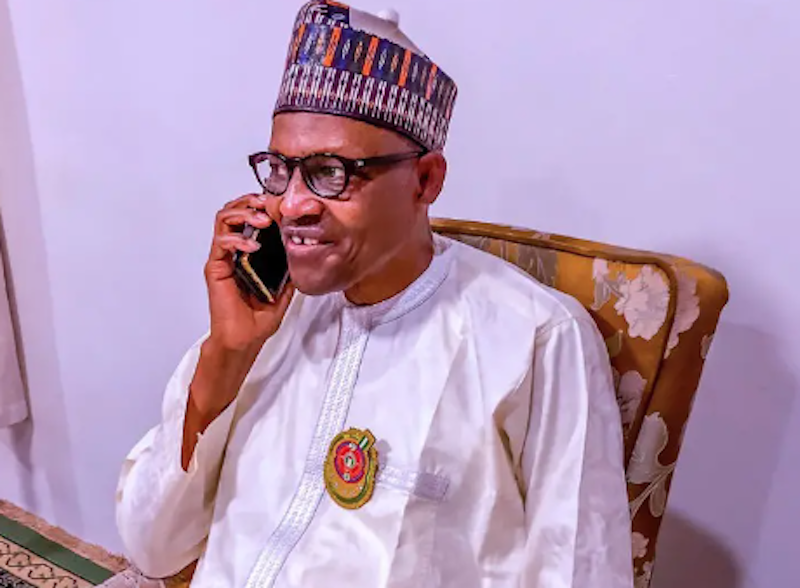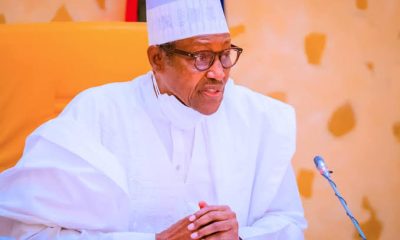Politics
Buhari Impeachment Drama And Other Crises That Rocked National Assembly In 2022
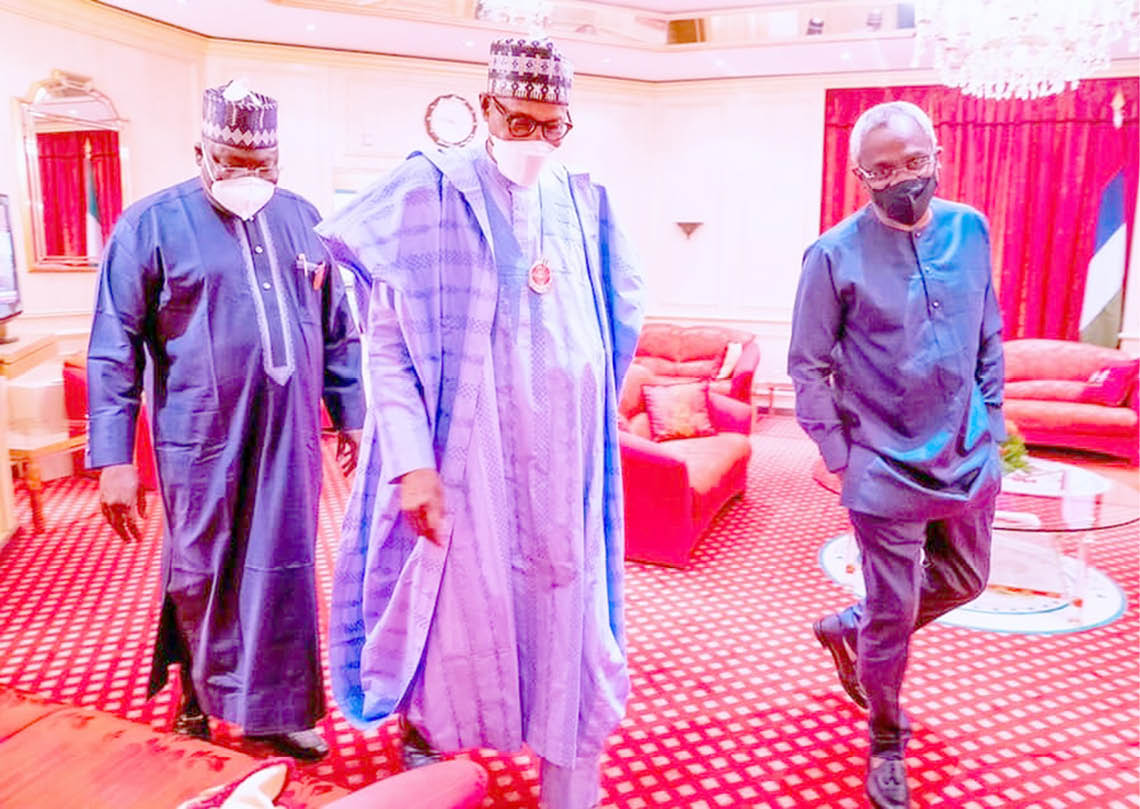
Members of the National Assembly had a tough time in 2022. The year began with a tit for tat between the executive and the legislature over the Electoral Act. Not long after that, majority of the federal lawmakers suffered defeat during party primaries, with the Senate President, Ahmad Lawan, described as the worst loser, having lost both presidential and senatorial tickets.
Almost two-dozen senators also cried to President Buhari for help without success. Others changed parties in desperate moves to return to the parliament. As the clock ticks towards the end of the Ninth Assembly in June, many of the lawmakers’ political careers are hanging.
The much-touted constitution amendment is in limbo, with no success in sight after gulping taxpayers’ hard-earned money. Also, a threat by opposition members to sack Buhari over rising insecurity fizzled out, justifying the claims by critics who dismissed the threat as empty.
The federal parliamentary workers were also not left out; they were in a confused state over the presence of two men occupying the post and discharging the functions of the Clerk to the National Assembly (CNA).
Power play over Electoral Act
The year 2022 also saw the end of the drama, intrigues and power play between the executive and the legislature over the Electoral Act.
In the twilight of 2021, President Buhari declined assent to the Electoral Bill, citing direct primary as the only option of nominating candidates for election.
The lawmakers, determined to get the bill scale through, said the reasons advanced by the president did not hold water and therefore set in machinations to override Buhari’s veto in line with Section 58 (5) of the 1999 Constitution (as amended).
After grandstanding, the legislators failed to make good their threat, and when they reconvened in January, 2022, re-amended the draft law to include direct, indirect or consensus methods of picking candidates for elective offices.
President Buhari assented to the bill on February 25. While the dust was about to settle, another issue came up; Buhari’s amendment request that Section 84(12), which bars political appointees from contesting elections, was overwhelmingly rejected by the lawmakers.
Senators from across party lines spoke against amending the bill and urged that the senate abide by a court ruling which stopped the National Assembly from tampering with the electoral law.
In what seemed like a tit for tat, Buhari also withheld assent to a new amendment to Section 84(8) carried out by the lawmakers in May to make provision for statutory delegates to participate and vote at conventions, congresses or meetings of political parties.
High legislative turnover
Almost all the members of the National Assembly sought tickets of their parties to contest the 2023 elections but only a few succeeded. Some were knocked off by their second term governors who are also eyeing legislative seats. For others who sought other positions, especially governorship, the political calculations in their respective states did not work in their favour.
Few others chose not to seek re-election based on the political exigencies they found themselves in.
Old timers like Ahmad Lawan (Yobe), Ike Ekweremadu (Enugu), James Manager (Delta), Oluremi Tinubu (Lagos) and Smart Adeyemi (Kogi) will be missing in the 10th National Assembly.
In the House of Representatives, the list includes former Speaker Yakubu Dogara; Deputy Minority Leader, Toby Okechukwu; Leo Ogor; Ossai Nicholas Ossai; Herman Hembe and Pat Asadu.
Buhari impeachment threat
Opposition lawmakers in July threatened to impeach President Buhari if the country’s worsening insecurity was not addressed after six weeks.
The move began in the senate when opposition members stormed out of plenary chanting, “Buhari must go”, when the Senate President, Lawan, blocked the move to debate a resolution reached at an executive session during which they had agreed to a six-week ultimatum on the president to address the spate of insecurity.
The impeachment plot thickened two days after when PDP members in the House of Representatives aligned with their colleagues in the senate.
Presidential spokesman, Garba Shehu, fired at the opposition lawmakers, describing them as “divided” and “confused” and urged them to spend their time and energy on tackling the pressing issues Nigerians faced.
Budget padding
Members of the National Assembly were mostly accused of padding the federal government budget. However, the 2023 budget scrutiny revealed a different thing: MDAs shifted the blame to the Ministry of Finance which collates the estimates submitted by all government agencies for the next fiscal year.
The agencies, after the lawmakers uncovered some suspicious spending proposals buried in the budget, said the finance ministry should be held responsible.
The National Universities Commission (NUC), Ministries of Defence, Power and Humanitarian Affairs told senators that they had no knowledge of the line items running into billions of naira in their 2023 budget proposals.
The finance ministry blamed computing error, which it said “resulted in a wrong description of the projects.”
The Senate Appropriation Committee later cleared the minister, Zainab Ahmed, of alleged padding after a series of explanations.
Constitution review
The current constitution review exercise is gradually toeing the path of its “predecessors” which ended as jamborees with little or no success.
The National Assembly had in March transmitted 44 constitution amendment bills to the 36 state assemblies for further legislative work but only a handful of them acted on the bills and forwarded their decisions to the National Assembly. Those in charge, the constitution review committee in both the senate and House of Representatives, raised concern recently, accusing state governors of frustrating the process.
Speaker of the House of Representatives, Femi Gbajabiamila, at the “Distinguished Parliamentarians Lecture 2022” organised by NILDS, said he was doubtful that the constitution amendment process would be concluded before the Ninth National Assembly winded up in view of the delay.
Reps vs CBN over cashless policy
In the twilight of 2022 there was a faceoff between the House of Representatives and the Governor of the Central Bank of Nigeria (CBN), Godwin Emefiele, over the apex bank’s cashless policy.
The CBN had earlier limited cash withdrawal to N100,000 per week for individuals and N500,000 for corporate organisations, but later reviewed it to N500,000 and N5m respectively following pressure from Nigerians.
The house had passed a resolution asking the apex bank not to proceed with the implementation of the cash withdrawal limits which was due to come into effect on January 9, 2023, until Emefiele briefed lawmakers on contentious issues.
Following Emefiele’s failure to appear before the house on two occasions, the lawmakers resolved to allow the bank’s Deputy Governor in charge of Financial System Stability, Aishah Ahmad, to represent him.
The lawmakers, after grilling the CBN chief, said they would take a position on the matter at a later date.
Water resources bill
In the House of Representatives, the re-introduction of the National Water Resources Bill in July, 2022, generated controversies.
The house had in September, 2020, withdrawn the water resources bill it had already passed following criticisms that trailed the legislative decision.
But the reintroduction of the bill in July by Rep Sada Soli raised dust at the Green Chamber, with the lawmakers opposing it.
When the bill came up for first reading, Rep Mark Gbillah (Benue) raised a point of order, drawing the attention of the speaker to the fact the bill was earlier rejected following the controversies that trailed it, questioning the rationale behind its re-introduction.
But Speaker Gbajabiamila said that the contentious aspects had been removed from the reworked bill and that the new bill came up after wider consultations with stakeholders, including governors.
Cross-dressing bill
Another bill that raised controversy at the house was a bill seeking to amend the Same-Sex Marriage Prohibition Act (2013) to outlaw cross-dressing in Nigeria.
The bill, which was sponsored by Rep Muda Lawal, proposed that cross-dressing, whether done privately or publicly, should be prohibited and proposed a six-month jail term for offenders.
But when the bill came up for second reading, Deputy Speaker, Hon Idris Wase, who presided over the sitting, said the bill be stepped down in view of its sensitive nature.
He observed that some cultures in Nigeria, especially in the South South, had men that tied wrapper as cultural dressing, noting that the effects of the bill could be detrimental to their traditions.
N/Assembly clerk
The presence of two Clerks to the National Assembly (CAN) created confusion in parliament on who to address as the chief accounting officer.
Sani Magaji Tambuwal, who was named acting CNA and Amos Olatunde Ojo, the outgoing clerk, were in charge and both were discharging the duties of the office.
Ojo, who was due to retire from service February, 2023, was asked to proceed on a three-month mandatory pre-retirement leave in November in line with public service rules.
However, in a dramatic U-turn, the National Assembly Service Commission (NASC) recalled Ojo to office until February, 2023, notwithstanding the appointment of Tambuwal as acting CNA to succeed him.
The recall of Ojo followed a letter from the Senate President, Lawan, to the Chairman of NASC, to the effect that Ojo’s services were still needed to compile and transmit the 2023 Appropriation Bill to be passed by the National Assembly to President Buhari for assent.
The National Assembly staff union described the development as “policy summersault” on the part of the NASC which approved the appointment and the retention of Tambuwal and Amos.
Source: Daily Trust
Send Us A Press Statement Advertise With Us Contact Us
And For More Nigerian News Visit GWG.NG


